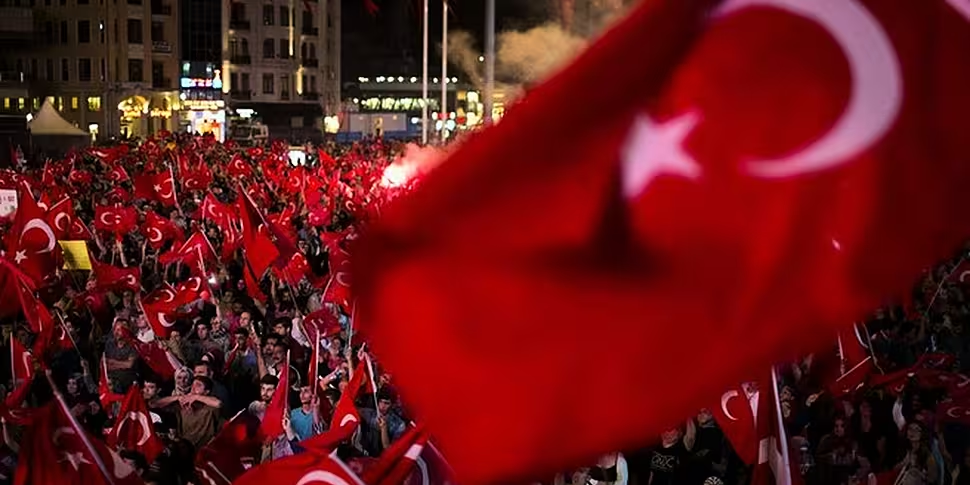Around 50,000 soldiers, police, judges, civil servants and teachers have been arrested or suspended from their jobs in Turkey in the past few days.
The move comes following a failed coup last Friday carried out by a faction of the Turkish military aimed at toppling the government run by President Recep Tayyip Erdogan.
The coup leaders said they were acting in the name of democracy and that they wanted to "reinstate constitutional order, human rights and freedom" in Turkey.
Officials have raised the death toll from the violence surrounding the coup attempt to 240 government supporters and at least 24 coup plotters.
Following the attempt, President Erdogan has ordered the arrests of thousands of people as he tries to regain control over the country.

Image: Hussein Malla / AP/Press Association Images
Latest reports from the country indicate that 99 of 360 military generals have been charged over their alleged roles in the attempt to overthrow the government. Another 14 generals are still in detention.
900 officers have also been suspended from the Ankara police force, as well as almost 3,000 judges and prosecutors.
Erdogan's post-coup purge of state institutions has since been extended to the education sector.
1,577 university deans have been sacked and the education ministry have moved to revoke the licences of 21,000 teachers working in private institutions.
Travel ban for academics
A ban on travel has been announced for academics by Turkey's High Board of Education, and will apply until further notice.
Academics who are already abroad were urged to return home immediately and university rectors have been asked to 'urgently examine the situation of all academic and administrative personnel linked with the Fethullah Terrorist Organisation (FETO)' and report back by August 5th.
FETO is the term used by the government to describe supporters of Muslim cleric Fethullah Gulen, who lives in the United States.
Gulen has been blamed for the coup but denies involvement.

Fethullah Gulen | Image: Chris Post / AP/Press Association Images
Reintroduction of the death penalty
The coup attempt has led to public anger and calls for the government to bring back the death penalty.
The country's president has said he is also ready to reinstate it for anyone involved in the uprising, if the public demands it.
Capital punishment was abolished in 2004 as part of Turkey's bid to join the European Union.
European officials have said its reinstatement would be the end of Ankara's attempts to join the EU.
Turkey's National Security Council is holding an extraordinary meeting today followed by a previously unscheduled cabinet meeting, after which Erdogan said an "important decision" would be announced.

Government supporters in Taksim Square, Istanbul | Image: Petros Giannakouris / AP/Press Association Images
WikiLeaks blocked
Turkey has also cut access to WikiLeaks hours after the leaking of thousands of e-mails from Erdogan's ruling party - many of which were sent in the run-up to the coup attempt.
The cache of nearly 300,000 AK Party e-mails was obtained before the plot to overthrow the government, and dates from 2010 to July 6th of this year.
WikiLeaks said it had brought forward publication "in response to the government's post-coup purges," which have seen around 50,000 public officials removed from their jobs.
Turkey's Telecommunications Communications Board said on Wednesday that an "administrative measure" had been taken against the website - the term it commonly uses when blocking access to sites.









